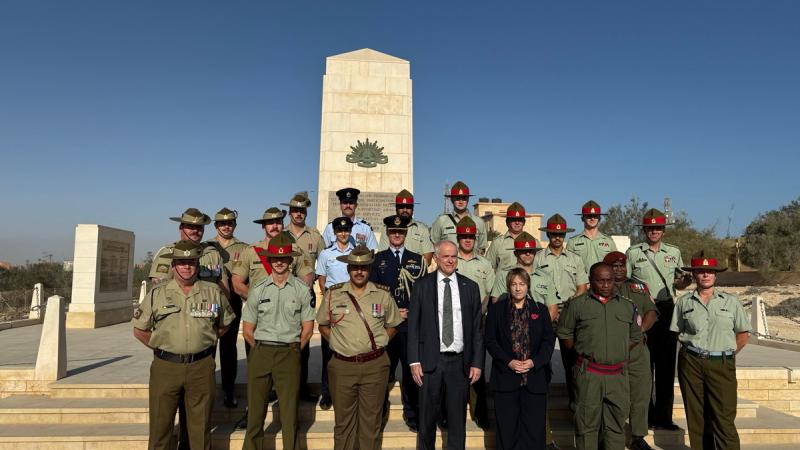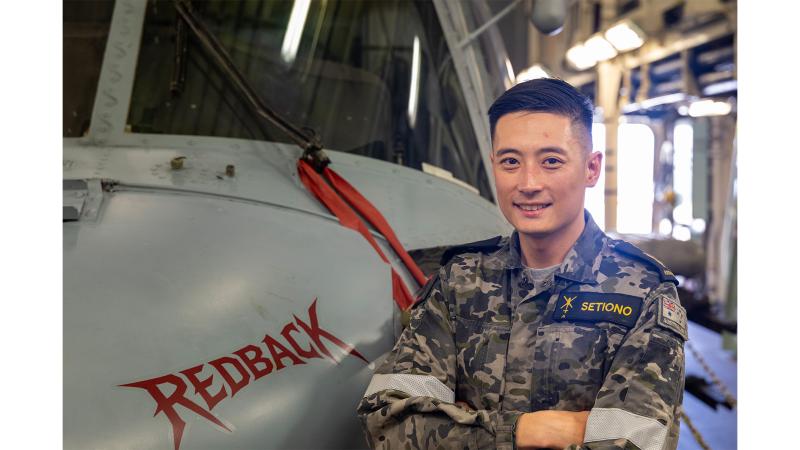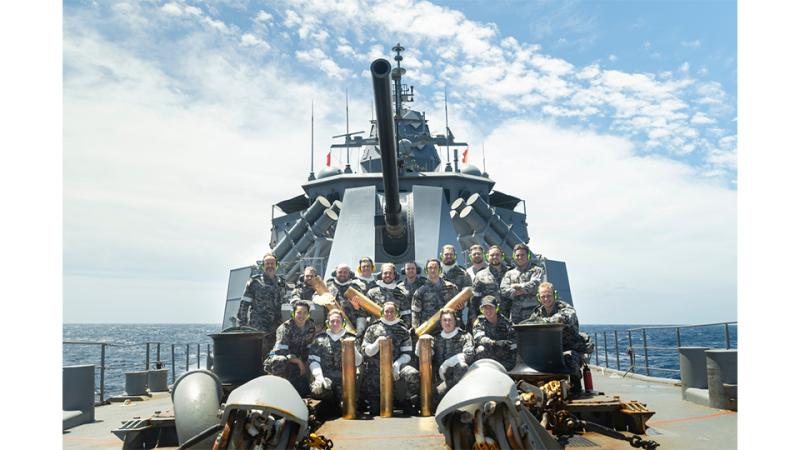11 November 2025
On day three of Indo Pacific 2025, leaders from the Royal Australian Navy, Royal Navy, Australian Submarine Agency and the United States Navy spoke on multiple panel discussions with a renewed focus on undersea warfare and nuclear systems.
The role of undersea warfare in national security and how operations in this domain are evolving was the subject of the first panel for the day, chaired by Head of Nuclear Submarine Capability Rear Admiral Tom Phillips.
The conversation highlighted the unique benefits from sustaining an advanced subsurface force, such as maintaining access through stealth and domain awareness.
With Australia’s new Naval Nuclear Power Regulator established this month, the nation’s nuclear-powered submarine program is rapidly advancing.
Tim Hodgson, Deputy Director-General Australian Submarine Agency – the lead agency for supporting Australia’s acquisition of nuclear-powered submarines and nuclear vessel construction – spoke of responsible nuclear stewardship, focusing on safety, security and safeguards, with Australia drawing on the experiences from the UK and US.
“This is one of the biggest and most important endeavours Australia has ever undertaken,” he said.
“We are on track delivering to the plan with our AUKUS partners, and so much has been achieved since the last Indo Pacific conference in 2023.
“In fact, about 170 RAN personnel are excelling in US nuclear training pipelines, while more than 200 Australian industry experts are working at Pearl Harbor Naval Shipyard, maintaining nuclear vessels and deepening their expertise.”
'This is one of the biggest and most important endeavours Australia has ever undertaken.'
Director of AUKUS Integration and Acquisition Rear Admiral Richard Seif, of the United States Navy, called it the “evolutionary next step” in shared defence.
“Naval nuclear propulsion really is an incredibly powerful technology that demands rigorous compliance and exacting standards to implement safely,” he said.
“Building up that nuclear culture is not something you can just airdrop or transplant; you really do have to grow it.”
He said this integrated effort safeguarded Collins-class sustainment in Adelaide while scaling SSN-AUKUS in Western Australia.
In further exploration, a later panel highlighted what Professor Peter Dean, of Australian National University, called “Western Australia Amnesia”, a belief that the ‘east coast’ often forgets about the state of Western Australia and the Indian Ocean.
David Brewster, Senior Research Fellow National Security College at ANU, said this was an issue, as 91 per cent of the country’s fuel imports arrived via the Indian Ocean.
The panel made it clear that if Australia was to secure its national interests, there was a need to not only think about the Pacific Ocean but also the Indian Ocean.


